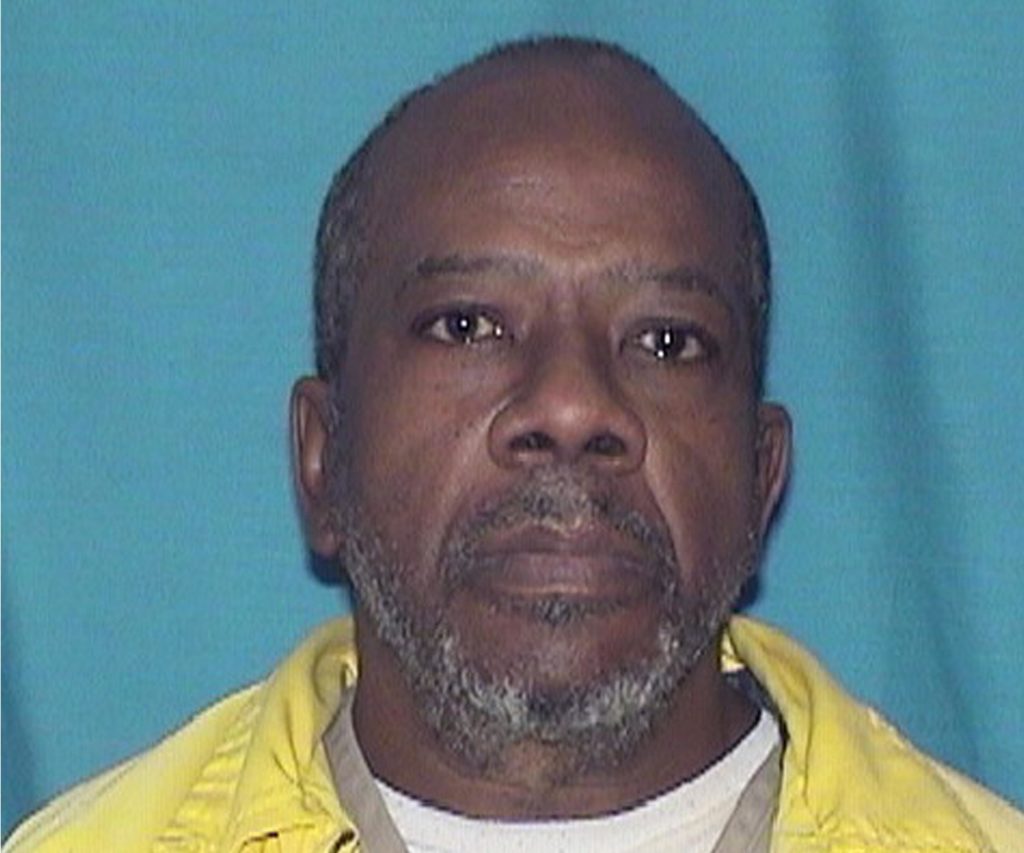
By JOHN O’CONNOR for the Associated Press
SPRINGFIELD, Ill. (AP) — Three state prison guards brutalized a 65-year-old handcuffed inmate at a western Illinois lockup four years ago, leading to the man’s death and prompting the officers to attempt a coverup, a prosecutor said Monday at two of the guards’ federal trial.
But defense attorneys for Department of Corrections Lt. Todd Sheffler and Officer Alex Banta argued during opening statements that their clients weren’t where others claim they were at the time of the May 17, 2018, beating of Larry Earvin, and that the testimony of dozens of witnesses will prove “illusory, contradictory and ambiguous.”
Sheffler, 53, of Mendon, and Banta, 30, of Quincy are on trial in U.S. District Court. They each face charges of depriving Earvin of his civil rights, conspiracy to deprive civil rights, tampering with a witness, destruction or falsification of records and intimidation or force against a witness.
“They kicked him. They stomped on him. Banta jumped up in the air with both knees and landed on his chest…,” Assistant U.S. Attorney Timothy Bass said. “Lt. Sheffler, as senior officer … participated in the battery. After turning him over to the segregation unit, the officers went to the health care unit to get treatment for scratches — scratches.”
Earvin, whose death was ruled a homicide, died five weeks after the 2018 incident at Western Illinois Correctional Center in Mount Sterling. Earvin was serving a six-year sentence for a Cook County robbery and due for release in September of that year.
He had a broken rib, a collapsed lung, a severe head injury and a “fist-sized” hole in his abdomen that interrupted blood flow to his colon and resulted in surgery to remove a portion of his bowel, according to Bass. He died June 26 in a Clinton County prison infirmary.
On the day of the incident, Earvin chose not to take yard time with other inmates but refused to return to his cell, Bass said. He was taken to the ground, handcuffed and hit and kicked by guards who sent out an alert for assistance, a call that summoned 28 officers including Banta and Sgt. Willie Hedden of Mount Sterling, according to Bass.
Hedden, of Mount Sterling, was also named in a December 2019 grand jury indictment. He pleaded guilty in March 2021 and is listed as a witness for the government.
Banta and Hedden escorted Earvin, who was able to walk out of the housing unit, to the segregation unit, where Sheffler joined them, according to Bass. In the unit’s vestibule, where there is no security camera, the three severely beat Earvin, then all three filled out incident reports in quick succession that indicated they turned Earvin over to segregation “without further incident,” Bass said.
Text messages among them in subsequent days counseled maintaining consistent stories, Bass said.
Sheffler attorney Sara Vig said her client was never in the housing unit, where Earvin was first beaten, and while dozens of witnesses were interviewed by the Illinois State Police and FBI, “not a single officer said they saw anything happen in segregation.” She cautioned the jury to listen carefully to how witnesses’ testimony changed from initial internal reports, through law enforcement interviews and grand jury testimony.
Stanley Wasser, representing Banta, noted that an inmate in the housing unit who witnessed the initial beating later identified two officers as participants — but not Banta.
Jurors should judge whether witnesses are “really recalling their unbiased and unfiltered accounts, or whether they started believing what they say from reading things over and over and being prepared to testify,” Wasser said.
“Evidence will show that testimony is illusory, contradictory and ambiguous,” Wasser said.
The trial could last three weeks, potential jurors were told last week. They were read a list of 74 potential witnesses. Banta is listed, Sheffler is not.
Hedden, Banta, and correctional Lts. Benjamin Burnett, of Winchester, and Blake Haubrich, of Quincy, were initially placed on administrative leave with pay. State records indicate Burnett and Haubrich, who make $95,616 a year, are active on the Corrections payroll. Both are listed as potential witnesses.






